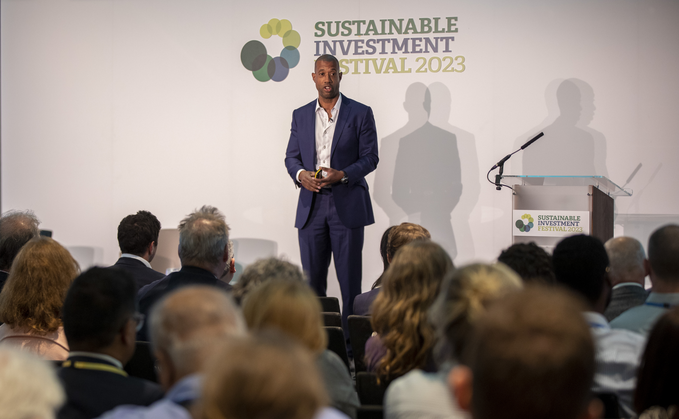
Gavin Lewis, author of The Opportunity Index and managing director at BlackRock
Racial inequality must be addressed through economic means, with the financial industry taking more proactive steps to do so, said Gavin Lewis, author of The Opportunity Index and managing director at BlackRock.
"Those more impacted by inequality are not in the room when it is decided that it is an issue," said Lewis, speaking at the Sustainable Investment Festival yesterday (14 June).
Recounting his decision to write a book on the problem of addressing racial inequality, Lewis said he and other black professionals were "exhausted from trying to drag the industry to where we felt it needed to be".
However, he added: "When George Floyd was murdered, it made us pose a question: ‘Are we really making any difference?'"
Lewis launched the #IAM industry campaign, in the wake of George Floyd's murder, which encouraged black people and non-black allies to answer the question 'Who are you?' in a photo of themselves alongside the hashtag. Each participant would then tag five others, asking them the same question.
The campaign received global support, with hundreds of thousands of people taking part in the viral movement.
Lewis said at the conference, that although the campaign was successful, he felt his questions from the beginning of the original campaign around the causes of inequality had still not been addressed.
The author recalled his experiences as a black man trying to work in the City and having to confront the racist links present in the physical buildings, such as the African slave carved into the Corn Exchange.
Lewis emphasised that while he thought there were various social reasons for inequality, such as the racism black children face in the classroom, the lack of economic opportunities was a frequently overlooked factor.
"My view was that there was another word in socio-economic disadvantage - economic - which is totally disregarded. We do not think about economic aspects of why this is still happening," he said.
Rather than simply hiring from an already existing pool of talent, he gave the example of offering apprenticeships in data science to those in deprived areas as a strong way that firms can work to reduce inequality.
He emphasised this would not only work to bring more equality into the workforce, but also yield long-term results for the firm.
However, Lewis was keen to state: "There is something odd about asking me how to fix this problem… You have to figure out what to do."









